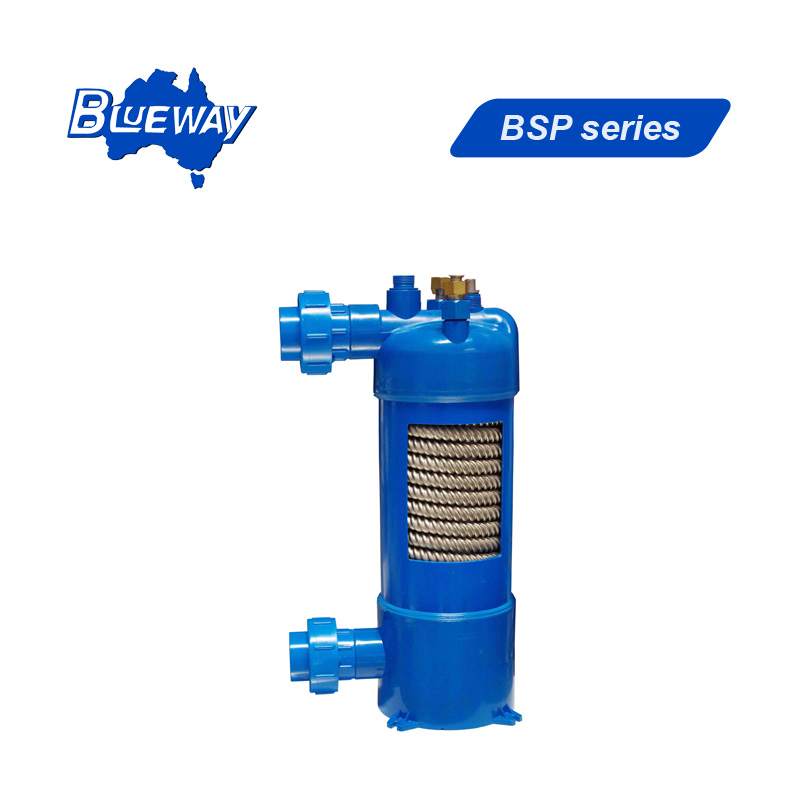Features of Titanium Heat Exchangers
2024-06-19
A titanium heat exchanger is a type of heat transfer device specifically constructed using titanium as the primary material for its tubes or plates. Heat exchangers are crucial components in various industrial processes where efficient heat transfer between two fluids is required. Here’s an overview of titanium heat exchangers, including their features, advantages, applications, and considerations:
Features of Titanium Heat Exchangers:
1. Material Properties:
- Corrosion Resistance: Titanium is highly resistant to corrosion, making it suitable for applications involving aggressive fluids or environments, such as seawater, acids, and chlorides.
- High Strength-to-Weight Ratio: Titanium offers strength comparable to steel but with a much lower density, making heat exchangers lighter and easier to handle.
- Biocompatibility: Suitable for applications in pharmaceutical, biomedical, and food industries where hygiene and non-reactivity with substances are critical.
2. Design and Construction:
- Tubes or Plates: Titanium tubes or plates are used to separate the two fluids while facilitating heat transfer between them.
- Fins: Some designs incorporate fins on the tubes or plates to increase the surface area for enhanced heat transfer efficiency.
- Welding and Joining: Titanium can be welded using specialized techniques to ensure leak-proof construction.
3. Heat Transfer Efficiency:
- Titanium’s thermal conductivity allows efficient heat transfer between the two fluids without significant loss or inefficiencies.
4. Operating Conditions:
- Temperature and Pressure: Capable of operating under high temperatures and pressures, depending on the specific grade of titanium used.
- Versatility: Suitable for both heating and cooling applications across a wide range of industries.
5. Maintenance and Durability:
- Longevity: Titanium heat exchangers are known for their durability and long service life due to the material’s resistance to corrosion and degradation.
- Low Maintenance: Require minimal maintenance due to their robust construction and resistance to fouling.
Advantages of Titanium Heat Exchangers:
1. Corrosion Resistance:
- Ideal for applications involving corrosive fluids or environments where other materials may degrade over time.
2. Hygienic and Clean:
- Suitable for industries requiring sanitary conditions, such as pharmaceuticals, food processing, and medical applications.
3. Lightweight:
- Easier to transport, handle, and install compared to traditional heat exchangers made from heavier materials like stainless steel.
4. Efficiency:
- Provides efficient heat transfer with minimal thermal losses, contributing to energy savings and operational efficiency.
5. Environmental Compatibility:
- Titanium is recyclable, and its use in heat exchangers supports sustainability initiatives by reducing environmental impact.
Applications of Titanium Heat Exchangers:
1. Chemical Processing:
- Used in chemical reactors, refineries, and processing plants for heat exchange between corrosive fluids.
2. Marine and Offshore:
- Suitable for seawater cooling and heating applications aboard ships, offshore platforms, and coastal facilities.
3. Power Generation:
- Utilized in power plants for cooling turbine condensers and heat recovery systems.
4. Food and Beverage Industry:
- Applied in food processing and beverage production for heating and cooling applications where hygiene is critical.
5. Medical and Pharmaceutical:
- Found in sterilization equipment, pharmaceutical manufacturing processes, and medical device production due to titanium’s biocompatibility and corrosion resistance.
Considerations:
- Cost: Titanium is more expensive than traditional materials like stainless steel, which may affect initial investment costs.
- Material Selection: Choose the appropriate grade of titanium based on the specific application requirements and operating conditions.
- Maintenance Requirements: While titanium is low maintenance, ensure proper cleaning and inspection protocols are followed to maintain optimal performance.
Conclusion:
Titanium heat exchangers offer significant advantages in terms of corrosion resistance, efficiency, and durability across a wide range of industrial applications. Their ability to withstand aggressive environments and provide reliable heat transfer makes them a preferred choice in industries where maintaining process integrity and efficiency are paramount. Understanding their features, benefits, and considerations helps in selecting and deploying titanium heat exchangers effectively to meet specific heating and cooling requirements.



